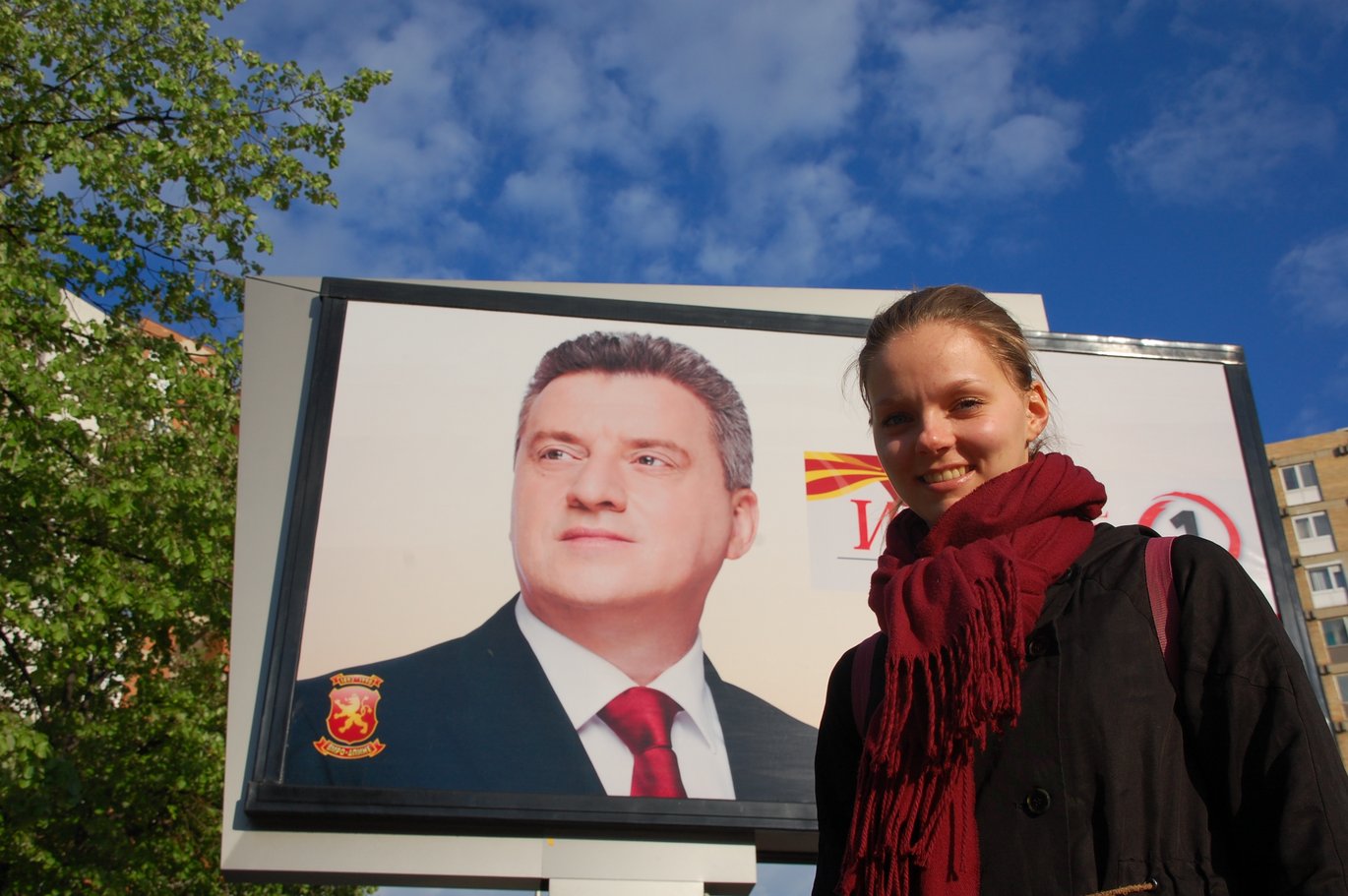"It reminded me of the idealism behind my own choice of study."
In the middle of April, fourth semester political science student Signe Andersen was an election observer during the first round of presidential elections in Macedonia.

Ordinarily Signe Andersen studies political science, and here in her fourth semester she is immersed in the two disciplines international politics and comparative political science. The degree programme can sometimes be a little heavy on the theory, and after Christmas she just needed to try something new. So Signe Andersen enrolled in SILBA, an organisation that works to promote democracy and freedom in the Baltic area. And that gave her the opportunity to travel to Macedonia as an election observer.
Working as an election observer
At home in Denmark, SILBA had sent Signe Andersen on an election observer course where she learned how open a polling station among other things.
In Macedonia SILBA worked together with a sister organisation whose members worked both as observers and interpreters on election day. When the team of observers visited the polling stations they saw things that you would never see in a Danish election.
"We came out to a school where the classrooms were used as voting booths. The actual ballot boxes were just open cardboard boxes and some of them were by the window, so you could stand outside and see who people voted for."
There was also the question of the effect of the strong police presence at the polling stations.
"Our observations were mostly based on gut feelings. Sometimes you’d come into a room where there was a strange atmosphere, like something was going on. We were also not sure whether a woman voted twice. But we could only observe so we couldn’t intervene on the spot."
Signe Andersen's group of three Danes and a Macedonian subsequently wrote a report based on their observations. All of the reports from the election observer group were then collated in a single report with recommendations for election improvements.
A different perspective
Back home, Signe Andersen does not doubt that she has benefited academically.
"We’re presented with a lot of theories during the degree programme, on things like the interface between various types of dictatorship and democracy. Visiting a country where we know that, yes, there’s a competitive election but still there’s going to be election fraud and corruption in the police, that’s an exciting experience."
She also feels that she got to use her academic skills along the way.
"While travelling from one polling station to the next we talked about how the election might fit into the various ideal kinds of democracy and dictatorship that we’d studied at university. That was an exciting way of discussing our field!"
Signe Andersen feels that going to Macedonia was good for her and she is ready to do it again.
"Political science is a degree programme with a lot of theory. The trip made me remember the idealism that made me choose it in the first place and it’s inspired and motivated me in my studies. SILBA is a really good way to fight for democratic values and to make a difference."
Do you want to be an election observer?
- SILBA stands for “Support Initiative for Liberty and Democracy in the Baltic Area".
- The association has 300 members. Half of them are members of the local Aarhus section. There are also sections in Copenhagen, Aalborg and Odense.
- The majority of members in Aarhus come from AU. Most are political science students, but there are also students of Eastern European studies and European studies, as well as a few from Science and Technology.
- The organisation’s activities in Denmark are intended to create awareness of the EU’s neighbouring countries.
- Approximately six times a year, selected members travel out as election observers.
- The international activities are divided into three groups of countries: Rusland-Belarus, Ukraine-Moldova and the Caucasus.
- Membership costs DKK 100. You can register at www.silba.dk.
- The organisation will be present in Ukraine on 25 May to monitor the parliamentary elections.
Translated by Peter Lambourne

